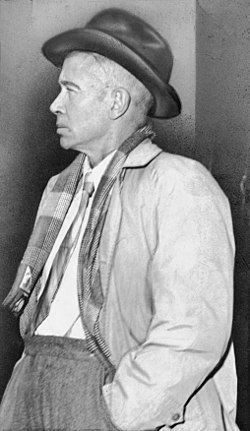E.E. Cummings Quote
Dont get me wrong oblivion I never loved you kiddo you that was always sticking around spoiling me for everyone else telling me how it would make you nutty if I didnt let you go the distance and I gave you my breasts to feel didnt I and my mouth to kissO I was too good to you oblivion old kid thats all and when I might have told you to go ahead and croak yourselflike you was always threatning you are are going to do I didnt I said go on you inter- est me I let you hang around and whimper and Ive been getting mine Listentheres a fellow I love like I never love anyone else thats six foot two tall with a face like any girl would die to kiss and a skin like a little kittens thats asked me to go to Murrays tonight with him and see the cab- aret and dance you know well if he asks me to take another Im going to and if he asks me to take another after that Im going to do that and if he puts me into a taxi and tells the driver to take her easy and steer for the morning Im going to let him and if he starts in right away putting it to me in the cab Im not going to whisper Oblivion do you get me not that Im tired of automats and Childss and handling out ribbon to old ladies that aint got three teeth and being followed home by pimps and stewed guys and sleeping lonely in a whitewashed room three thou- sand below Zero oh no I could stand that but its that Im O Gawd how tired of seeing the white face of you and feeling the old hands of you and being teased and jollied about you and being prayed and implored and bribed and threatened to give you my beautiful white body
Dont get me wrong oblivion I never loved you kiddo you that was always sticking around spoiling me for everyone else telling me how it would make you nutty if I didnt let you go the distance and I gave you my breasts to feel didnt I and my mouth to kissO I was too good to you oblivion old kid thats all and when I might have told you to go ahead and croak yourselflike you was always threatning you are are going to do I didnt I said go on you inter- est me I let you hang around and whimper and Ive been getting mine Listentheres a fellow I love like I never love anyone else thats six foot two tall with a face like any girl would die to kiss and a skin like a little kittens thats asked me to go to Murrays tonight with him and see the cab- aret and dance you know well if he asks me to take another Im going to and if he asks me to take another after that Im going to do that and if he puts me into a taxi and tells the driver to take her easy and steer for the morning Im going to let him and if he starts in right away putting it to me in the cab Im not going to whisper Oblivion do you get me not that Im tired of automats and Childss and handling out ribbon to old ladies that aint got three teeth and being followed home by pimps and stewed guys and sleeping lonely in a whitewashed room three thou- sand below Zero oh no I could stand that but its that Im O Gawd how tired of seeing the white face of you and feeling the old hands of you and being teased and jollied about you and being prayed and implored and bribed and threatened to give you my beautiful white body
Related Quotes
People lack morals, good moral character is important in every aspect of your life. Honesty and Integrity opens the door. Your character allows others to see you for who you truly are. Make your first...
People accuse me of falling in love easily. It just means that I'm able to see the beauty in most of the people who cross paths with me and I appreciate it for what it is and also for what it isn't. L...
About E.E. Cummings
Cummings wrote approximately 2,900 poems. He is often regarded as one of the most important American poets of the 20th century. He is associated with modernist free-form poetry, and much of his work uses idiosyncratic syntax and lower-case spellings for poetic expression. M. L. Rosenthal wrote:
The chief effect of Cummings' jugglery with syntax, grammar, and diction was to blow open otherwise trite and bathetic motifs through a dynamic rediscovery of the energies sealed up in conventional usage ... He succeeded masterfully in splitting the atom of the cute commonplace.
For Norman Friedman, Cummings's inventions "are best understood as various ways of stripping the film of familiarity from language to strip the film of familiarity from the world. Transform the word, he seems to have felt, and you are on the way to transforming the world."
The poet Randall Jarrell said of Cummings, "No one else has ever made avant-garde, experimental poems so attractive to the general and the special reader." James Dickey wrote, "I think that Cummings is a daringly original poet, with more vitality and more sheer, uncompromising talent than any other living American writer." Dickey described himself as "ashamed and even a little guilty in picking out flaws" in Cummings's poetry, which he compared to noting "the aesthetic defects in a rose. It is better to say what must finally be said about Cummings: that he has helped to give life to the language."
